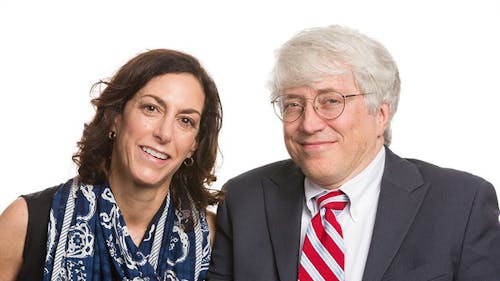Rutgers professors speak on increased voter registration among individuals with disabilities

Douglas Kruse, distinguished professor in both the Department of Human Resource Management and director of the Program for Disability Research, and Lisa Schur, professor in the Department of Labor Studies and Employment Relations and director of the Program for Disability Research, discussed the recent increase in registration among voters with disabilities.
They said this is due to an aging population that is more likely to develop disabilities, as well as the advancement in medical technologies that allow people with certain conditions to live longer than they would have before.
“We just developed a projection using Census data, cited in The New York Times, that 38.3 million people with disabilities will be eligible to vote next month, amounting to one-sixth of the total electorate,” they said. "If you include anyone who lives with a person with a disability, the number goes up to 67.7 million or 28 (percent) of the electorate.”
They said this population is large enough to swing an election. While their political makeup generally matches that of the rest of the country, they said there is evidence that they voted majorily Democratic in 2018.
When it comes to the upcoming presidential election, they said there are several factors that could affect the voter turnout among this population.
“Research shows that easier access to vote by mail, such as in all-vote-by-mail states, tends to especially help the turnout of people with disabilities, so the easier access in many states this year should increase turnout,” they said. “Added to this, people with disabilities tend to be more motivated by health care issues, which are important this year. But social contact is a big predictor of voter turnout — people with disabilities tend to be more socially isolated, and the pandemic is obviously increasing that.”
In the past, there has been a six-point gap between the voter turnout of people with or without disabilities in general elections, they said.
Additionally, while vote-by-mail gives more voters with disabilities the opportunity to vote, they said there might be issues when it comes to filling it out. Those with visual impairments, or who live alone and need assistance, particularly faced difficulties, they said.
“They are a large segment of our society, and it’s vital that everyone have equal opportunity to have their views heard and participate in democracy,” they said.



